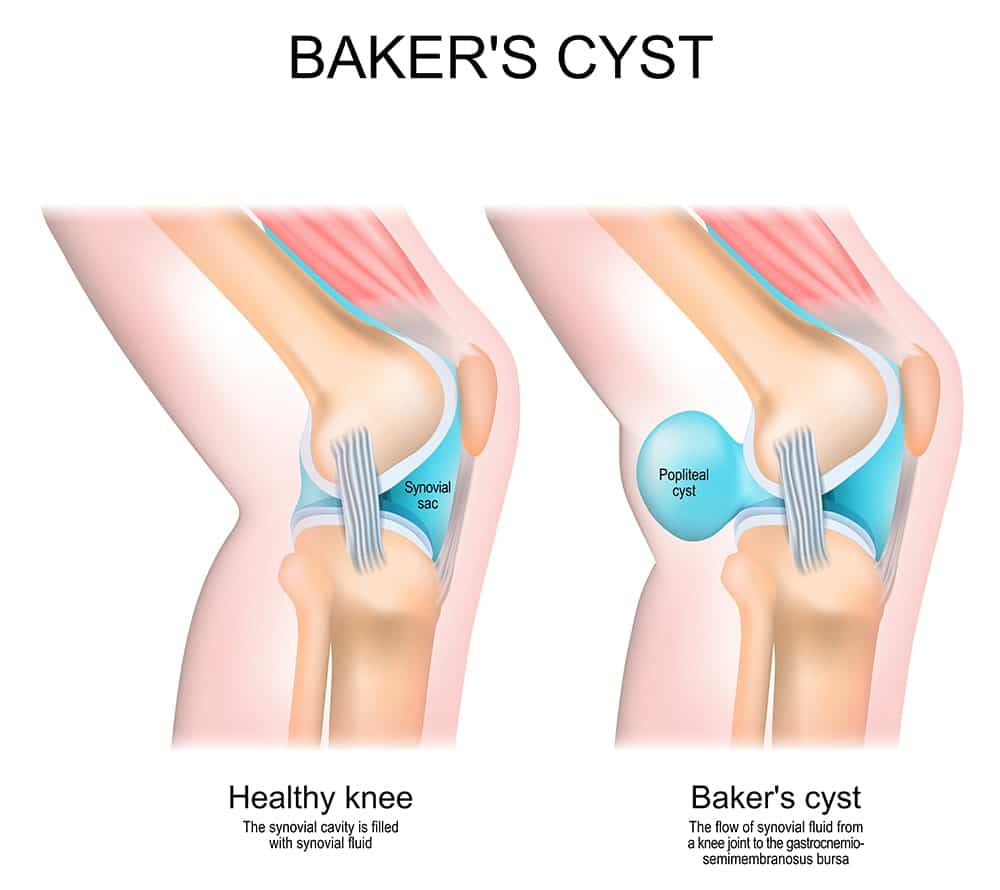
What is a baker’s cyst?
A baker's cyst, also known as a popliteal cyst, is a fluid-filled swelling that develops at the back of the knee joint. It is caused by the accumulation of synovial fluid, which lubricates the knee joint, and usually occurs as a result of an underlying knee problem such as arthritis, a meniscal tear, or a ligament injury. They are most common in adults over the age of 40 who have knee problems such as osteoarthritis, rheumatoid arthritis or a meniscus tear.
Symptoms
Symptoms of a baker's cyst may include swelling and tightness at the back of the knee, pain, and stiffness. In some cases, the cyst may rupture, causing sudden and severe pain, swelling, and redness in the affected area.
Treatment
Treatment for a baker's cyst depends on the underlying condition causing it. In most cases, treating the underlying condition will help alleviate the symptoms of the cyst. Physiotherapy treatments may include rest, ice, compression, and elevation (RICE), anti-inflammations, and exercise. In some cases, aspiration (draining) of the cyst or corticosteroid injections may be necessary. Rarely, surgical intervention may be required to remove the cyst.
My Physio My Health
Trust our team of physiotherapists to help you recover faster and improve your quality of life.

 WISHING EVERYONE A HAPPY NEW YEAR! WE'VE RETURNED TO OUR REGULAR OPENING HOURS
WISHING EVERYONE A HAPPY NEW YEAR! WE'VE RETURNED TO OUR REGULAR OPENING HOURS